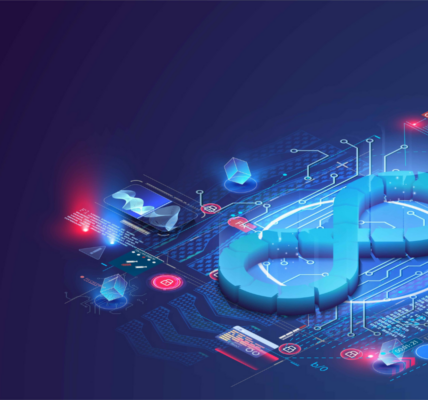Artificial Intelligence (AI) is revolutionizing the landscape of software development, offering a plethora of advantages as well as its own set of challenges. From enhancing productivity to enabling innovative solutions, AI is reshaping the way software is built and deployed.
In this article, we will explore the advantages and challenges of integrating AI into the software MVP development services development process, ranging from mobile MVP app development to custom MVP app creation.
Advantages of AI in Software Development
Enhanced Productivity: AI-powered tools and frameworks automate repetitive tasks, allowing developers to focus on higher-level tasks like design and innovation. This results in increased productivity and a shorter time-to-market for software products.
Improved Code Quality: AI Algorithms Can Analyze Code Patterns, Detect Bugs, and Suggest
Optimizations, Leading to Higher Quality Codebases with Fewer Errors. This Results in More
Robust and Reliable Software Applications.
Predictive Analytics: AI enables predictive analytics capabilities, allowing developers to anticipate user behavior, identify trends, and make data-driven decisions. This helps in creating personalized user experiences and optimizing business processes.
Natural Language Processing (NLP) technologies allow software applications to understand and process human language, enabling features such as chatbots and virtual assistants. These technologies also facilitate sentiment analysis, which improves user engagement and customer satisfaction.
Automated Testing: AI-driven testing tools automate the process of writing and executing test cases, leading to faster and more comprehensive test coverage. This helps in identifying and fixing bugs early in the development cycle.
Challenges of AI in Software Development
Complexity and Cost: Implementing AI in software development requires specialized skills and resources, which can be costly and time-consuming. Moreover, integrating AI into existing workflows may require significant changes to infrastructure and processes.
Data Privacy and Security: AI relies on large volumes of data to train algorithms, raising concerns about data privacy and security. Developers must ensure that sensitive information is handled responsibly and protected from unauthorized access or misuse.
Bias and fairness: AI algorithms may exhibit bias based on the data they are trained on, leading to unfair or discriminatory outcomes. Developers should carefully consider ethical implications and strive to mitigate bias in AI models.
Interpretability and transparency: AI algorithms are often complex and opaque, making it challenging to understand how they reach their decisions. This lack of transparency can hinder trust and accountability in AI-driven systems.
Regulatory Compliance: AI applications may be subject to regulatory requirements and compliance standards, such as GDPR or HIPAA. Developers must ensure that AI systems adhere to legal and ethical guidelines to avoid potential liabilities and penalties.
Conclusion
Despite the challenges, the benefits of integrating AI into software development are undeniable. AI offers a range of benefits, from enhancing productivity and code quality, to enabling predictive analytics, automated testing, and more. These benefits can drive innovation and competitiveness in the digital landscape.
However, developers must address challenges such as complexity, data privacy, bias, interpretability, and regulatory compliance in order to harness AI responsibly and fully. By partnering with experienced app development services, such as MVP app developers, businesses can effectively leverage AI technologies to create cutting-edge solutions that meet user needs and market demands.









